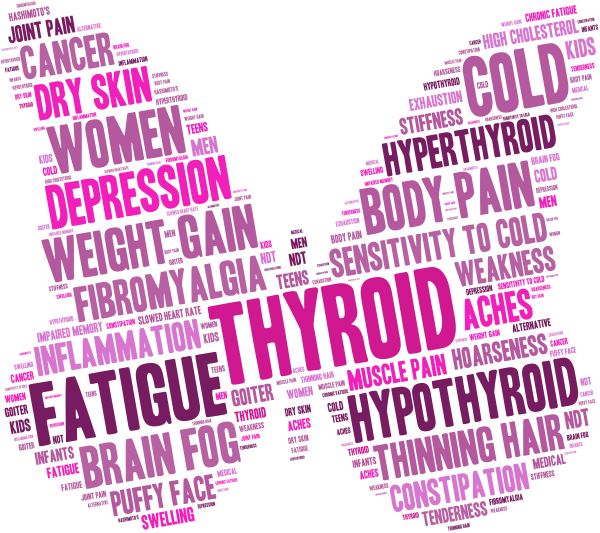Hypothyroidism and Hashimoto's can cause brain fog can be difficult to live with. Here are 7 things you need to know about thyroid brain fog.
While Brain fog may not be a medical term, it’s something many people with chronic illness know well. This is especially true for those with autoimmune hypothyroidism, Hashimoto's.

Brain fog can mean a lack of mental clarity, poor concentration, and more. Living with brain fog is hard…it affects everything you do throughout the day, every interaction you have.
Here are 7 things to know about Thyroid Brain Fog:
- It’s difficult to explain what brain fog is, especially in the middle of an episode. Even if people know you have it, there isn’t always an easy way to let them know that’s what’s happening. Excuses will range from “I’m having a brain fog day” to “Brain not working.”
- There are many different levels – The severity of the fog can change rapidly from one minute to the next. Some days you’re incredibly eloquent, while other days you can barely form full sentences.
- The world moves too fast – It can feel like you’re trapped in quicksand or wading through Jello. The world moves around you at a pace that you just can’t keep up with. It’s hard to grasp and understand concepts, too.
- Brain fog is all about forgetfulness — forgetting words, appointments, things on your to-do list, or why you walked into the kitchen. Fighting this takes a lot of effort and a lot of redundant systems, like keeping multiple calendars around the house.
- You’re always second-guessing – imagine that point where you’re almost asleep but wondering if you turned off the oven or locked the front door. Now, imagine that’s your all-day-everyday state of mind. This matters when it comes to taking medications or other critical functions.
- People sometimes think you’re drunk. Since people don’t understand brain fog very well, they try to figure out what’s wrong with you. It’s embarrassing and adds to the self-criticisms we often display when we’re frustrated with ourselves.
- It’s incredibly frustrating. Getting flustered just seems to exacerbate the symptoms. It becomes even more difficult to express yourself.
If you live with constant brain fog, there is hope.
If you would like to have more information or to set up a consultation and see how we can help you reduce the effects of hyperthyroidism or hypothyroidism, give us a call at (586) 731-8840 to schedule an appointment.*
To see if you are a candidate for our care, call for a consultation today. Call 586-731-8840.
For more details about the natural approach I take with my patients, take a look a the book I wrote entitled: Reclaim Your Life; Your Guide To Revealing Your Body's Life-Changing Secrets For Renewed Health. It is available in my office or at Amazon and many other book outlets.
If you found value in this article, please use the social sharing icons at the top of this post and please share with those you know who are still suffering with low thyroid symptoms or other chronic health challenges, despite receiving medical management. Help me reach more people so they may regain their zest for living! Thank you!




